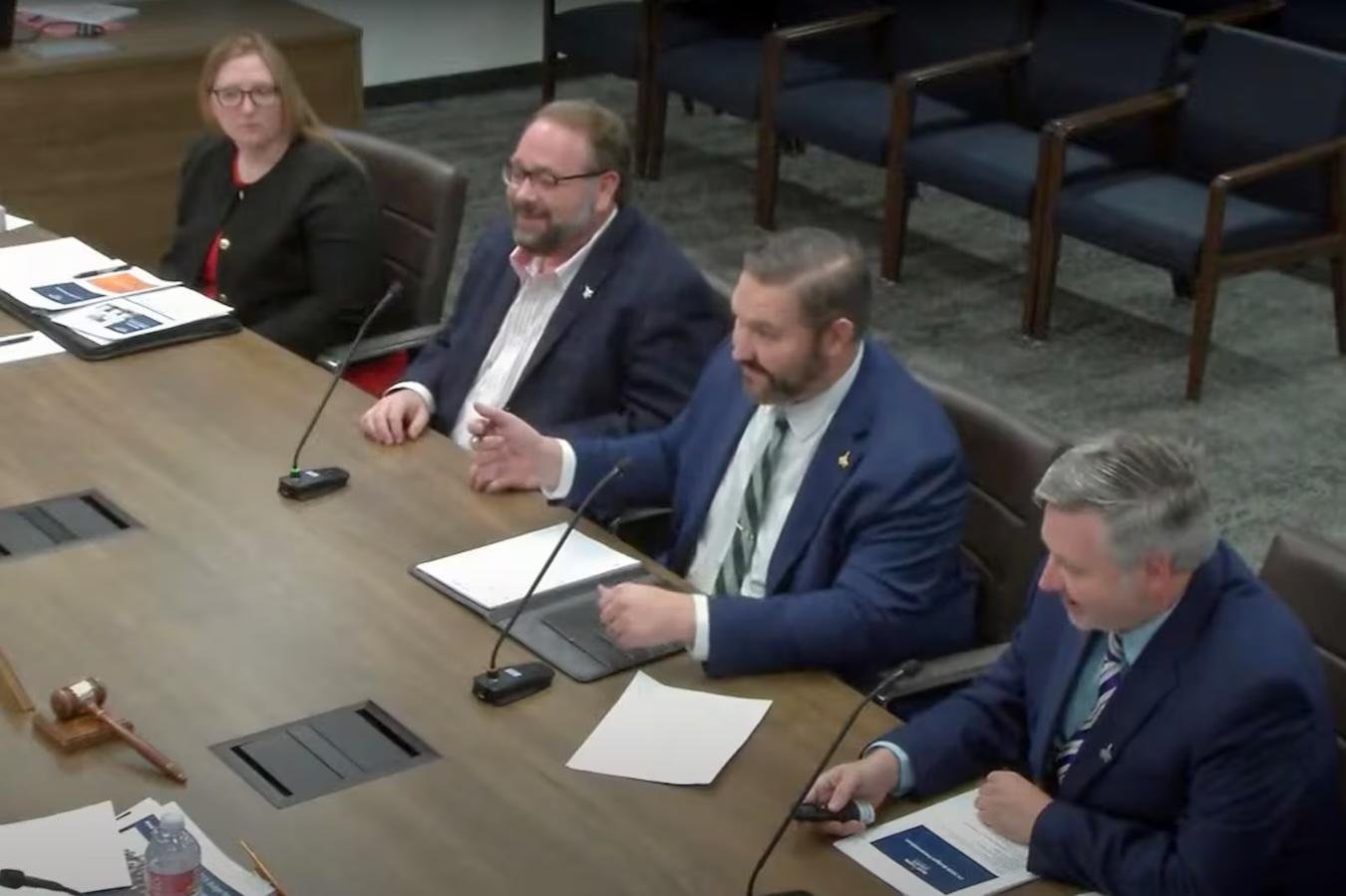Business
In Maricopa County, Arizona, the Fierce Fight for Election Control Unfolds

Maricopa County’s new recorder, Justin Heap, has publicly rejected an agreement that divides election control between his office and the county supervisors. Heap is threatening legal action against the supervisors if his demands for increased authority are not met. This decision has introduced uncertainty over the electoral process in Arizona’s most populous county, crucial as local elections approach in May and the 2026 gubernatorial election looms.
Heap, a former state representative, is advocating for more staff in his office and greater control over early voting procedures. In a news release, he accused the previous board of supervisors of conducting a “backroom, eleventh-hour power grab” by approving a shared-services agreement just before he took office. Heap claims that the supervisors’ refusal to engage in discussions about a new agreement is compromising the county’s election readiness.
Supervisors Chairman Thomas Galvin countered Heap’s allegations, asserting that discussions about a new agreement have been ongoing for weeks and that the supervisors are eager to collaborate with Heap. The pressure to conduct smooth and reliable elections is palpable, following years of misinformation and genuine issues that have eroded voter trust in Maricopa County. However, due to Arizona’s legal framework dividing responsibilities between the recorder and supervisors, effective cooperation is essential for resolving these challenges.
As April approaches, a consensus must be reached to ensure timely ballot distribution for upcoming all-mail elections in Glendale and Goodyear. Matt Salmon, a Republican former congressman involved with the Democracy Defense Project, emphasized that Heap’s combative approach may hinder both collaboration with the supervisors and voter confidence.
Heap previously described the October agreement, signed by former Recorder Stephen Richer, as a “power grab.” His aggressive stance echoes themes from his campaign, during which he criticized county elections as a “laughingstock.” In his bid for office, he expressed skepticism about the integrity of past elections, pledging to revolutionize the electoral system, despite the fact that recorders typically do not control major election operations.
Under typical roles, recorders manage voter registration and early voting, while supervisors oversee Election Day logistics and ballot counting. The current board of supervisors is committed to reforming election processes, having recently allocated $480,000 for independent audits of election technology and procedures, with Heap’s participation reportedly assured.
Over the past decade, the supervisors have gradually regained control over elections previously held by the recorder’s office. While past recorders, including Richer and Adrian Fontes—now the Arizona Secretary of State—navigated disputes with the supervisors quietly, Heap’s public criticism marks a departure from this practice.
Initially, relations between Heap and the supervisors appeared amicable. During a public budget meeting last month, they sought to resolve disagreements regarding control of election-related IT staff. Heap proposed an audit to enhance voter registration, seeking additional resources for this task, but Galvin raised concerns about potential redundancies and costs.
Shortly after the meeting, some state lawmakers, affiliated with the Freedom Caucus, began to criticize Galvin’s stance, accusing him of undermining Heap. Heap later issued a news release declaring a “BATTLE OVER MARICOPA COUNTY ELECTIONS” with the supervisors, a characterization Galvin rejected.
Critical disagreements persist not only regarding the division of election control but also concerning the interpretation of the October agreement. Both sides concur that the agreement transferred control of essential election IT staff and a key database from the recorder to the supervisors. Heap argues that the agreement undermines the recorder’s authority over early voting, a claim Galvin contests.
Heap has indicated that he will not abide by the agreement, as he believes it violates Arizona laws concerning the limitations of elected officials’ powers. Following consultations with county attorneys, Heap informed the supervisors of his rejection in January. Both sides have since engaged external legal counsel to navigate the complexities of the situation.
The implications of Heap’s rejection remain unclear, especially concerning the longevity of the October agreement. Supervisor Kate Brophy McGee commented that Heap’s decision may not have immediate effects, as the agreement stipulates that any termination would only take effect after the next general election, extending its application until 2026.
Heap, however, has vowed to pursue legal action if necessary. He stated, “With an election less than 90 days away, the Supervisors’ unwillingness to address these concerns will force me to take legal action against the Board to restore this office’s full authority, and deliver the results voters elected me to achieve.” This situation signals a potentially contentious path ahead for Maricopa County elections.


















